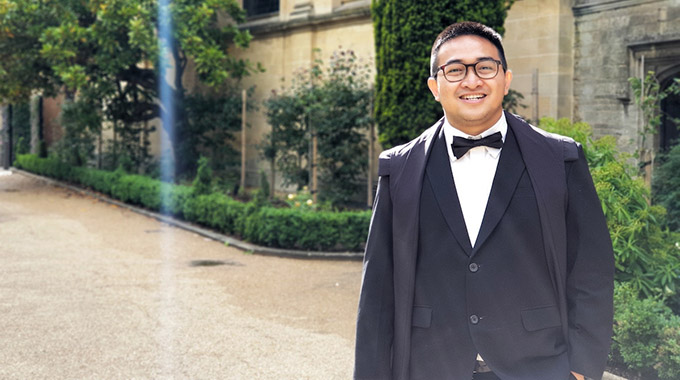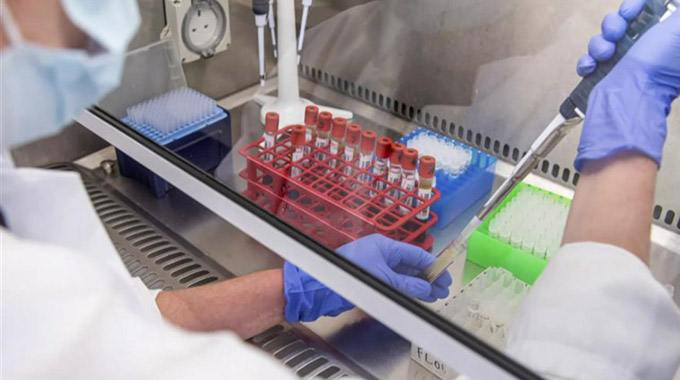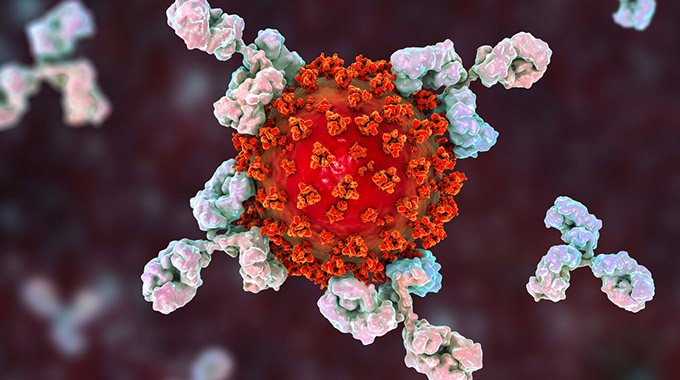Meet the Indonesian student on Oxford’s COVID-19 vaccine team

Rizki Fachriansyah
When Indra Rudiansyah first arrived at the University of Oxford in 2018 to pursue a doctorate in clinical medicine, he never thought he would be working on the world’s most sought-after vaccine.
The 28-year-old was supposed to be testing malaria vaccines at the university’s Jenner Institute earlier this year when news suddenly broke out of a highly contagious strain of coronavirus spreading in China.
When the situation later escalated into a full-blown pandemic, all research activities related to malaria vaccines were immediately put on hold as the laboratory shifted its focus to the development of a vaccine for the novel coronavirus and the disease it causes, COVID-19.
Indra, whose work had ground to a halt as a result of the pandemic, then decided to sign up for COVID-19 vaccine trials conducted by a research group for emerging pathogens at the Jenner Institute.
“With the skills that I have, I was assigned to the antibody response team to help with the trials,” he told The Jakarta Post during a video interview on Monday.
Indra – who has a bachelor’s degree in biotechnology and a master’s degree in microbiology from the Bandung Institute of Technology in West Java – is among more than 200 scientists at Oxford involved in the research and development of a COVID-19 candidate vaccine, touted as one of the most promising potential vaccines in the world.
In a relatively brief period of time, Indra has experienced the twists and turns of a scientific endeavor that, under normal circumstances, would unfold over several years, not months.
As part of the antibody response team, Indra collects samples from those who have volunteered for the vaccine trial, and measures the immune system’s response to the vaccine.
The process required a lot time, he said, as the expected immune response against the coronavirus could only be observed three to six months after the vaccine’s injection.
“The pressure comes from the virus itself, not from the public,” Indra said. “We are racing against time here as the [coronavirus] transmission rate in the UK has started to decline, which means we could eventually lose the opportunity to test our vaccine.”
Working under direct supervision of prominent Irish vaccinologist and Jenner Institute director Adrian Hill, the team’s results thus far are encouraging.
As reported by the BBC last month, the Oxford candidate vaccine, called AZD1222, seems to have no serious side effects and triggered an immune response among over 1,000 people involved in the trials.
However, there is still a long way to go before the vaccine can be declared ready for widespread usage.
“According to project leader Sarah Gilbert, we can expect an interim report of the trials by the third quarter of this year. But the vaccine itself will not be available at least until early next year,” Indra said.
AZD1222 is one of several potential COVID-19 vaccines being developed around the world.
Indonesia’s Eijkman Institute for Molecular Biology, for instance, is spearheading a vaccine development program that targets local coronavirus strains.
State-owned pharmaceutical company Bio Farma aims to mass-produce the Eijkman candidate vaccine by 2022.
Bandung’s Padjadjaran University is also working together with Chinese pharmaceutical company Sinovac to hold clinical trials for a Sinovac candidate vaccine, which is hoped to be ready for production by early next year.
Indra, who previously worked at Bio Farma from 2014 to 2018, urged the Indonesian public to volunteer for vaccine trials as more subjects meant more research data.
“More people should participate in vaccine trials since the process gives them the rare opportunity to contribute to a scientific breakthrough,” he said, adding that the vaccine trials in the UK were met with enthusiasm among members of the general public.
In the meantime, he called on the public to continue to observe health protocols while waiting for a vaccine to emerge.
“People need to wait and comply with any measures and regulations to keep the transmission as low as possible by maintaining social distancing and hygiene,” he said.
According to data from Johns Hopkins University, there are at least 18.3 million confirmed COVID-19 cases worldwide with 694,715 deaths.
Indonesia, meanwhile, has reported 115,056 confirmed cases and 5,388 fatalities as of Tuesday.- The Jakarta Post









Comments